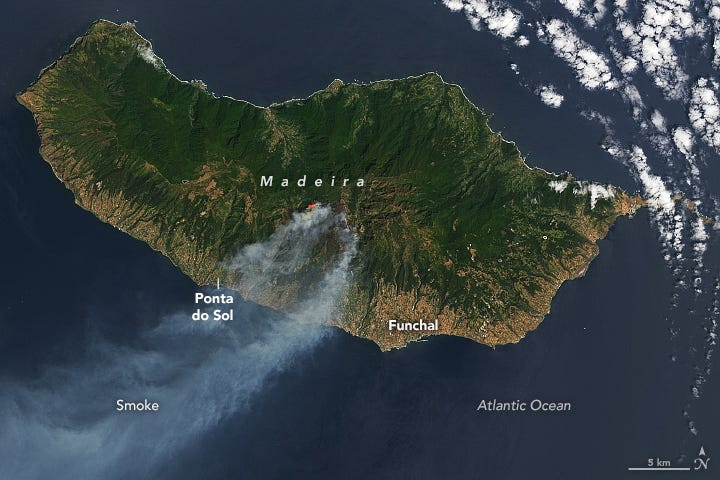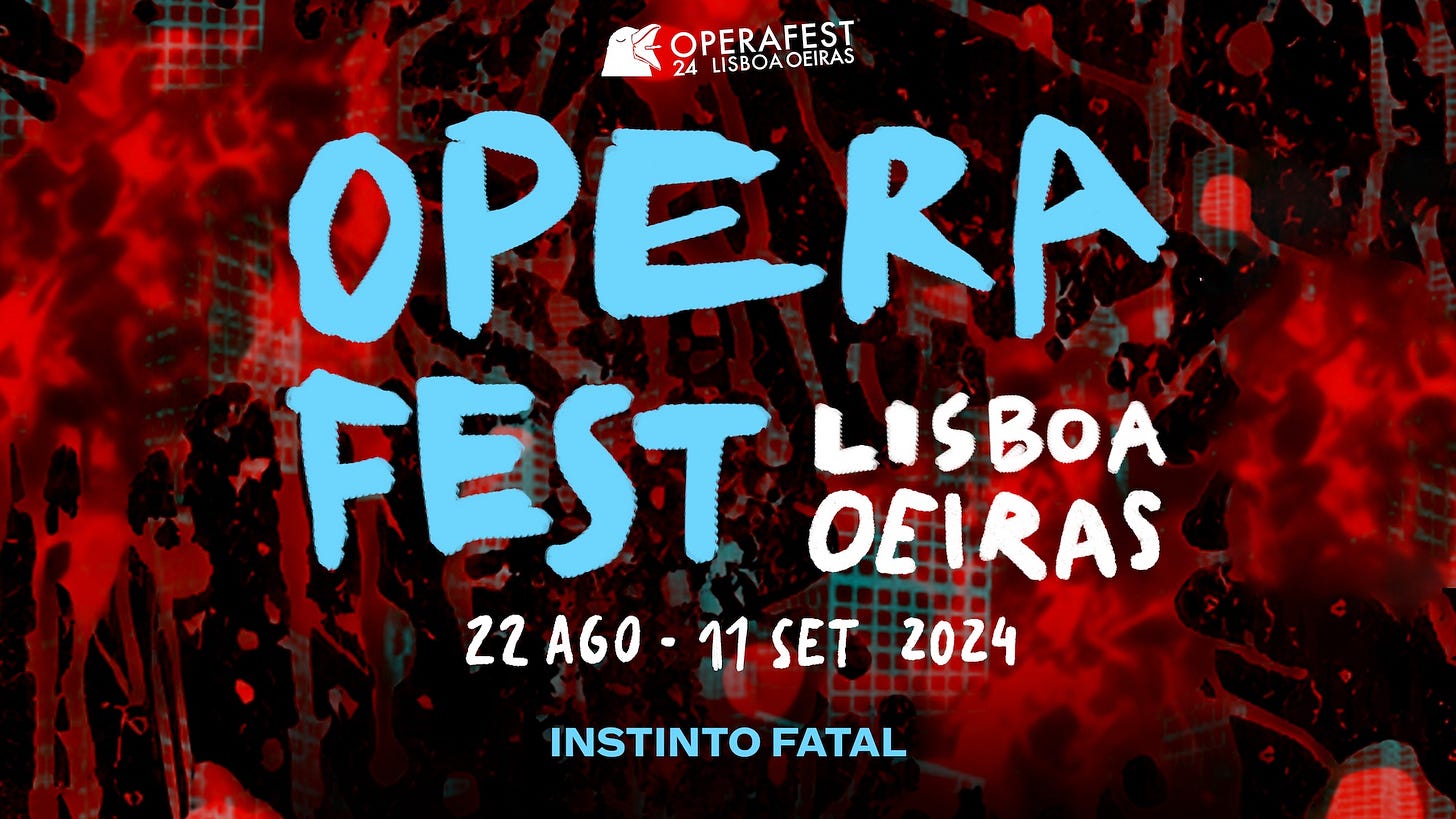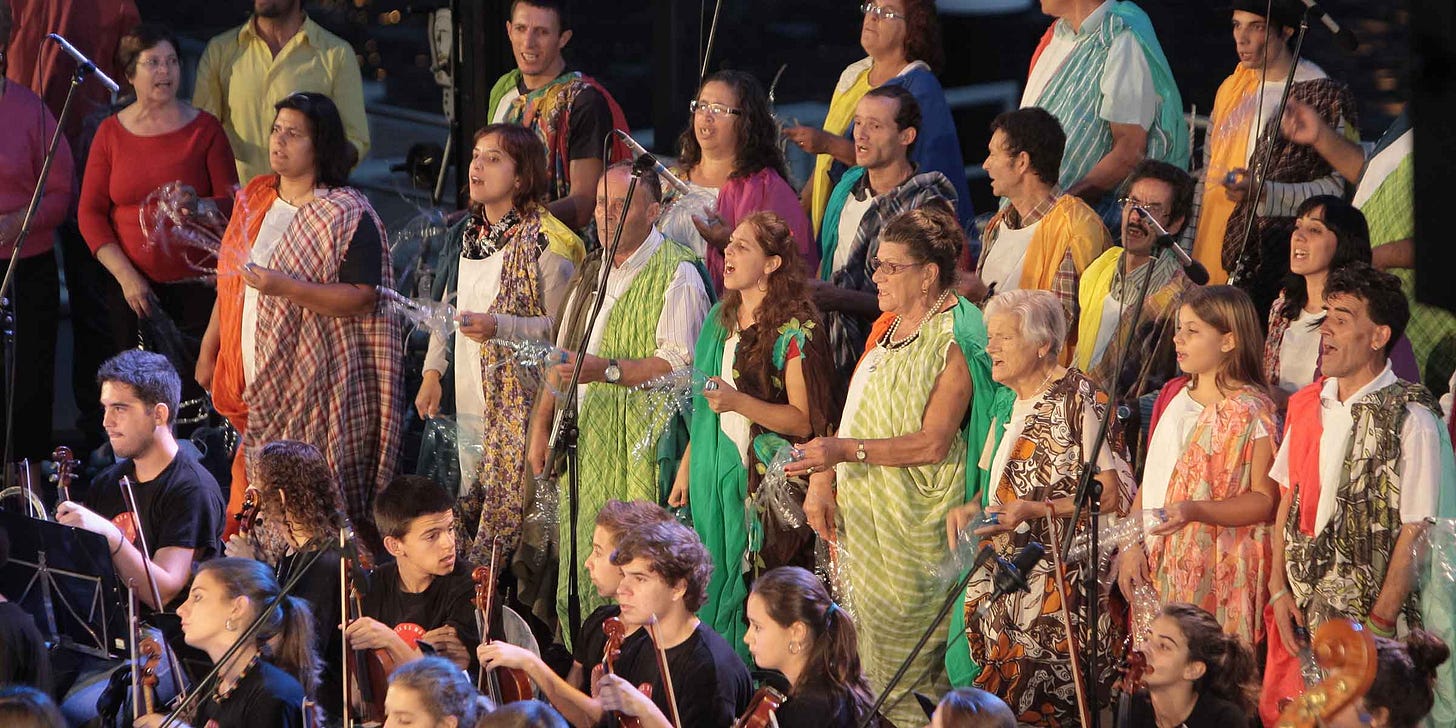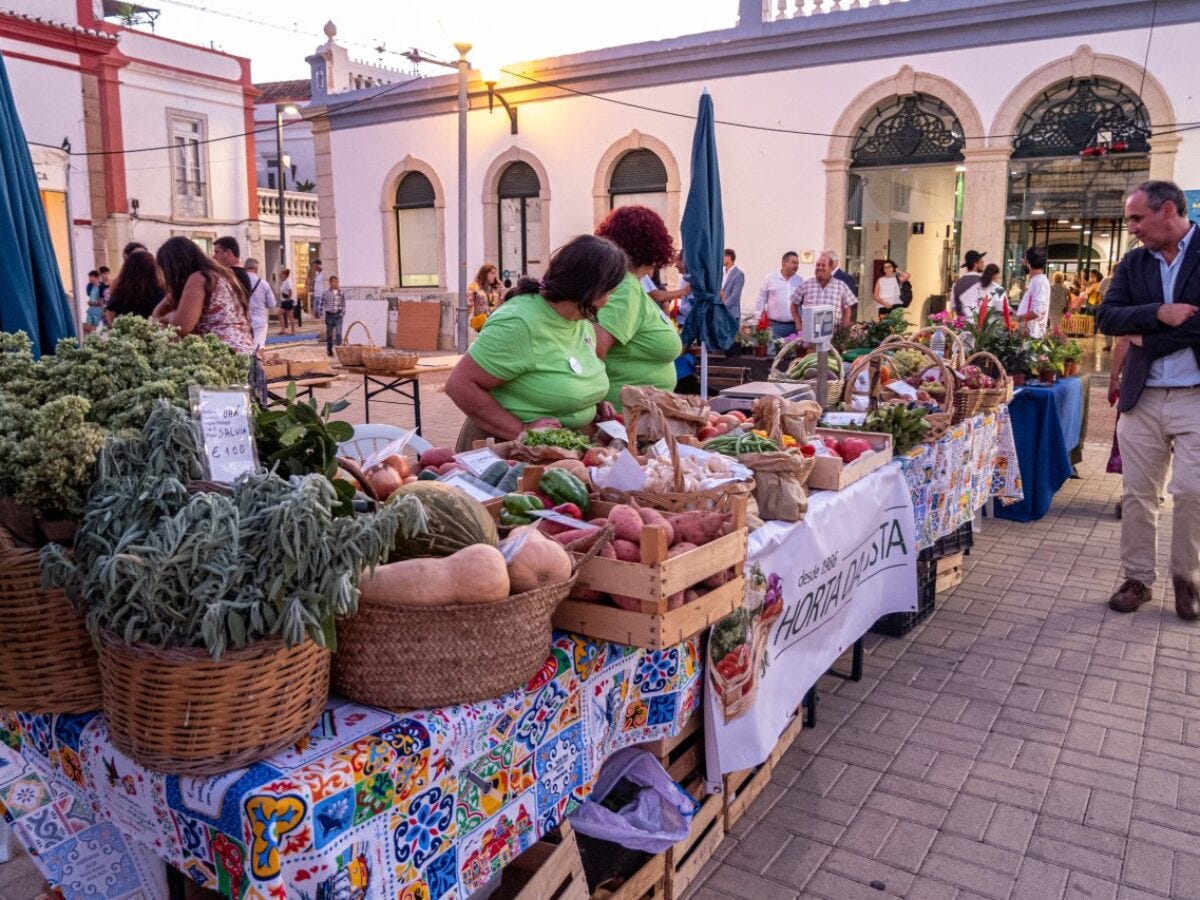Friday Briefing: Will the Government fall?
Good morning and welcome to PORTUGAL DECODED. 'Tis silly season but, in a few weeks time, Portuguese politics will be dead serious. Here's what you need to know.
TALK OF THE TOWN

POLITICS
The Madeira Regional Government faces harsh criticism over its handling of the wildfires threatening the main island’s Laurissilva forest - a UNESCO World Natural Heritage site, estimated to be 20 million years old (More).
Far-right Chega announced a demonstration against “uncontrolled migration” and a proposal for a referendum on immigration quotas that it intends to use as a bargaining chip to make the 2025 State Budget viable (More).
SOCIETY
Amid a chaotic summer in hospitals, the General Coordinator of Gynecology and Obstetrics at Alfredo da Costa Maternity - the largest such public hospital in Greater Lisbon - resigned, citing the heavy workload (More).
Bird flu has been detected in a Viana do Castelo farm, prompting authorities to ban poultry and eggs circulation in 26 parishes across northern Portugal (More).
ECONOMICS
Mortgages interest rates fell in July for the sixth consecutive month: they’re now below the 4.5% mark, the lowest since October 2023. Rates on new contracts are at their lowest point since April 2023 (More).
The Government approved housing legislation that ends the extraordinary tax on short-term rentals, limits the power of condominiums to shut them down and facilitates exemption from capital gains on house sales (More).
CULTURE AND SPORTS
Portuguese director of Cape Verdean origin film-maker Denise Fernandes won the revelation prize at the Locarno Film Festival with ‘Hanami’, a project filmed on the vulcanic island of Fogo (More).
Sintra Council has announced plans to halve the limit of 9,000 daily tourists at Quinta da Regaleira from September as part of attempts to quash growing discontent with mass tourism (More).
DECODER
Why is there a budget conundrum?
Will the Government fall?
The 40-year-old Portuguese two party-system — dominated by the centre-right PSD and the centre-left PS – effectively came to an end this March, when far-right Chega party won over 18% of the votes in early elections. In addition to the party’s rise, this election produced a hung parliament with the governing Aliança Democrática (AD) unable or unwilling to cut a governing deal with opposition parties. These parties have already disrupted the Government’s plans by joining forces in Parliament to approve crucial proposals such as tax cuts and the end of motorway tolls. But, make no mistake, the moment of truth - for the Government and opposition parties alike - will be the forthcoming 2025 State Budget vote. Here’s why.
First, some (recent) history.
Following the 2019 elections, the António Costa-led minority Government abandoned its governing deal with the Left Bloc and the Communist Party (the so-called “Geringonça”) and sought to strike deals with both right and left parties in Parliament. In October 2021, both left-wing parties announced that they would vote against the Government’s 2022 budget proposal. President Marcelo Rebelo de Sousa warned that if there was no budget, he would dissolve Parliament and call a snap election, with a view to pressure the former partners to approve the budget. When this didn’t happen, the President did as promised, eventually leading to António Costa’s PS winning an absolute majority in January 2022.
Why are you telling me this?
For two reasons. First, President Marcelo’s 2021 decision to call early elections after the failure of budget negotiations set an important precedent: no budget, no Government. If the AD’s budget isn’t approved now, it will be difficult for President Marcelo to explain why, this time, he will not dissolve the Parliament and call a snap election. In other words, his hands are kind of tied (though he wishes they’re weren’t because he will go down in history as the President who has dissolved the Parliament thrice). Second, in January 2022, both the BE and the PCP were severely punished by the electorate for triggering the political crisis. This explains why opposition parties are now so reluctant to vote against the State Budget: they anticipate that voters will also punished them for bringing them back to the ballot boxes so soon after the last elections.
So what will the PS do?
The million-euros question. Leader Pedro Nuno Santos will face strong opposition in his own party in any scenario. With the country’s finances in good condition, the AD has sought to build momentum by spreading goodies: from wage hikes for teachers to pensions’ bonus, there’s something for everyone. This, together with the punishment that will likely follow the budget’s rejection, makes this a worse-case scenario for him to face elections. On the other hand, the Portuguese Constitution determines that the President cannot call elections in the first and the last six months of his mandate. Since the next Presidential elections are scheduled to take place on January 2026, Marcelo Rebelo de Sousa can only do it until June 2025. This means that if the opposition approves the 2025 State Budget, this Government will likely rule until late 2026 (at least): which might be too late for Santos to survive opposition within the PS.
What about Chega?
Chega also faces a tough choice, albeit for different reasons. Following the party’s weaker than expected performance in the European elections, Chega appears more willing to strike a budget deal with the Government. At the same time, Chega needs to attract voters away from the AD to continue growing: it hopes that the AD’s closeness to the Socialist will push right-wing voters towards it. Hence, its attempts to draw attention to immigration with a proposal for a referendum, a demonstration in Lisbon and measures used as a bargaining chip for the State Budget. But, even on this, Chega has been unclear: initially saying the referendum proposal was one among many measures to be discussed, and later calling it “unavoidable”. In the end, it will come down to how much of a face-saver the Government will afford to the opposition in the negotiations.
Must the President call elections if budget negotiations fail?
No. If the 2025 State Budget isn’t approved in Parliament, the Government could still stay in power and manage the country by twelfths (i.e. a monthly budget based on previous year’s budget figure divided by 12). Former President Aníbal Cavaco Silva has recently said that he believes that “there is no drama if the State Budget is not approved”. PM Montenegro has also said that he won’t resign if the budget negotiations fail. However, when asked about this scenario, President Marcelo didn’t hesitate: “That's futurology.” Sure, but this has all the elements for a great beginning of the political year here at PORTUGAL DECODED. So, stay tuned!
TIPS OF THE WEEK
Lisbon
Operafest 2024
The 5th edition of Operafest Lisboa, the festival that aims to bring opera closer to the public, is back from August 22 to September 11. This year, under the moto “Basic Instinct”, the event starts in the Gardens of Palácio Marquês de Pombal, in Oeiras, heading after to the capital. In Lisbon, the concerts take place at the Open-air Amphitheatre of Calouste Gulbenkian Foundation, Palácio Sinel de Cordes, Cinemateca Portuguesa, El Corte Inglés, Sociedade de Instrução Guilherme Cossoul and Titanic sur Mer. More information here.
Porto
Concerts in the Avenue
From the theatre to the outdoors: once again, Casa da Música promotes two concerts on Porto’s Avenida dos Aliados, in partnership with Porto City Council, to mark the restart of the cultural activity in the city. On Friday 6 September, at 10pm, the stage will be filled with songs by Orquestra Som da Rua. Created in 2009, this project brings together homeless and musicians around a common goal: to sing against solitude.The following day, September 7, at the same time, the Porto Casa da Música Symphony Orchestra will take the stage. The ensemble promises a programme full of timeless dances and stories, with orchestral proposals inspired by the folklore of Russia, Hungary and Romania. Entrance is free.
Alfândega da Fé
Circ’Bô – Festival de Artes do Circo nas Serras Transmontanas
It’s the first edition of this festival that aims to break the cultural isolation of Trás-os-Montes. Over the three days, from August 23-35, there will be plenty to see and do in the streets of the village of Vilares da Vilariça, where 40 to 50 people live all year round (and only four children): as well as a moonlight circus and a Chinese mast, for example, there are electronic music concerts, workshops, a regional craft market and nature-related activities for families. For those who want to spend the weekend, a camping and motorhome park has been set up. More information here.
Ponte de Lima
Sidrama - Cider and Orchard Drinks Festival
The third edition of Sidrama, the cider festival taking place in Ponte de Lima takes place this weekend, with 25 national and international brands to try. Sidrama is part of Ciderlands, a worldwide network of cider regions and tourist destinations, to which Ponte de Lima belongs as the only Portuguese territory. According to the organisers, after just three years the festival now has a wider range of outstanding projects, including 15 national cider brands. The event also features DJ music and bands, as well as live cooking, talks and debates. Free entrance.
Tavira
Mediterranean Diet Fair
The Mediterranean Diet Fair returns to Tavira from September 5-8 for its 10th edition. The Fair will have 170 exhibitors, both institutional (45) and from the agri-food and craft sectors (125). These exhibitors will be spread throughout the historic centre of the city, which is also a reminder of a past marked by Mediterranean cultures, such as the Phoenician, Roman, and Arab. In addition to the musical part, there will be exhibitors of handicrafts and traditional products, botanical and seed shows, catering, gastronomic demonstrations, exhibitions, guided tours and seminars. Entrance is free.









